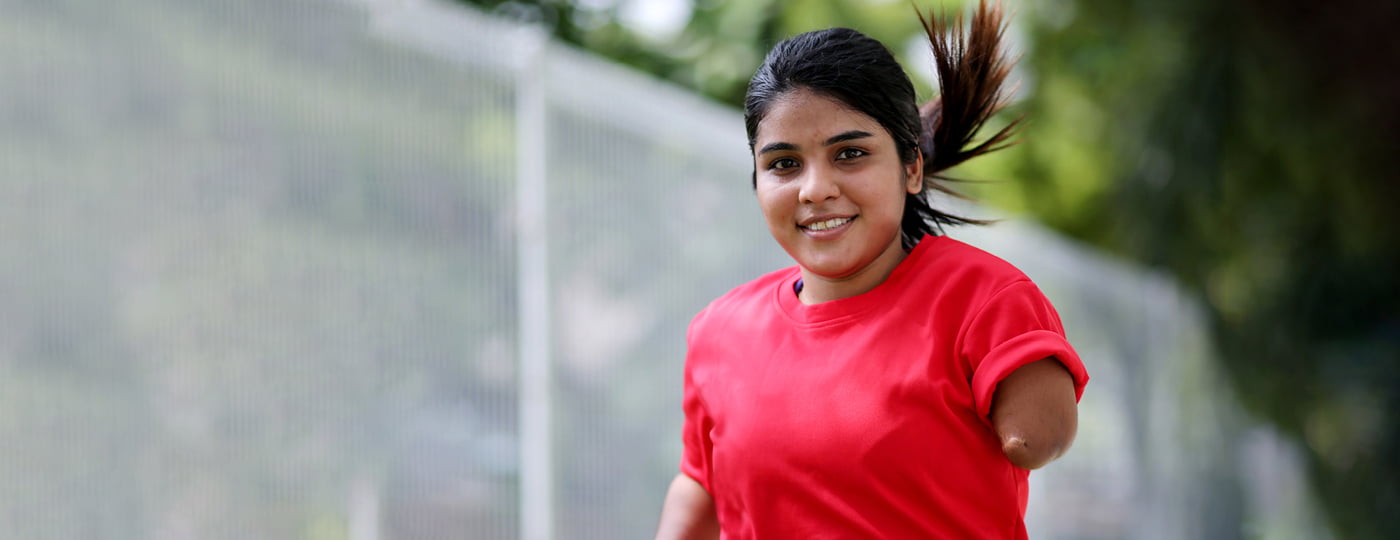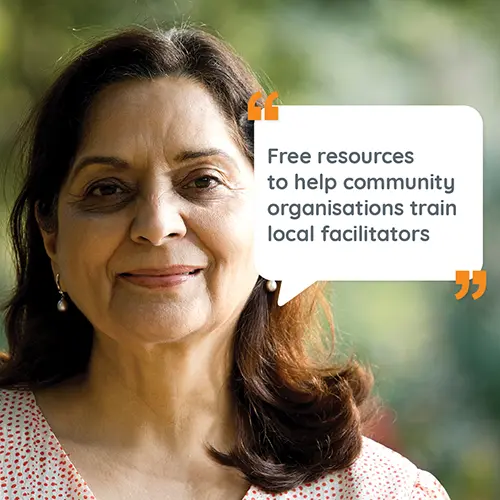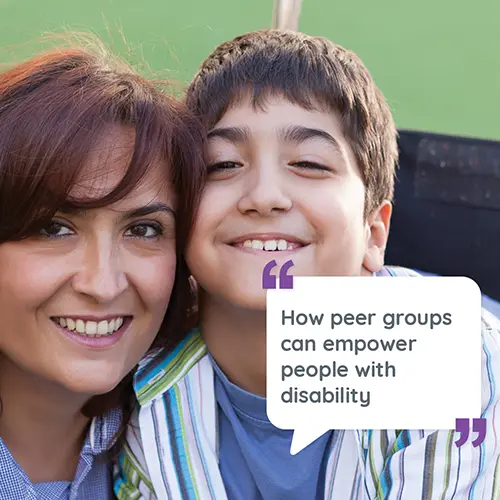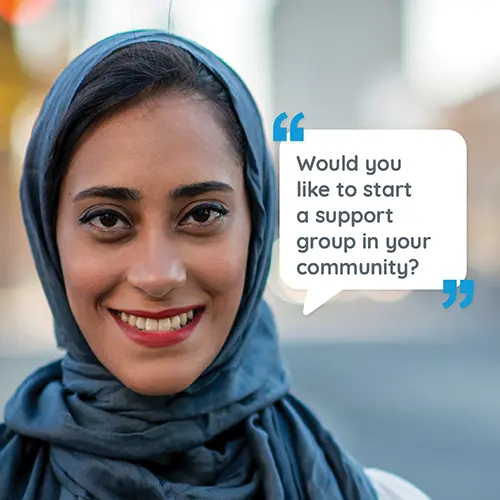Start your own peer-to-peer support group
Peer-to-peer support groups are a powerful way to connect people with disability to information that can greatly improve their lives. They also play an important role in bringing the disability community together to advocate for themselves and others.
The best part about these groups? Anyone can start one. With the right tools and resources, you can create a safe space for people with lived experience of disability to connect with each other, access advice, learn skills and become more independent.
Read on to find out how to form a peer-to-peer support group in your community and what free resources and training SSI now offers for community organisations to upskill and run their own groups.
For more information on the Multicultural Peer Network, email community@ssi.org.au.
What success looks like: Multicultural Peer Network
In 2020, SSI created a successful model for running disability support groups in multicultural communities across NSW called the Multicultural Peer Network (MPN).
The MPN was a collection of impactful, peer-led support groups which promoted independence among people with lived experience of disability from multicultural communities, as well their carers and families.
The program was funded through the Department of Social Services (DSS).
During the MPN program, SSI found tailoring disability support groups to different cultures, languages and interests had a vastly positive impact on people with disability in these spaces.
Watch the project wrap video to learn more and hear from the facilitators

Our results
71
community leaders
recruited and trained as peer group facilitators
1,000
program participants
supported across over 97 networks in 15 languages
92
of program participants
and 87% of family members and carers reported an increase in confidence
With a focus on guiding participants on advocacy and helping them gain new skills, 84% of participants agreed they were more knowledgeable about their rights and 85% felt they had new skills to help them achieve their goals.
With the resources from the MPN program now publicly available, community leaders and organisations can be empowered to start their own peer groups.
How to start your own peer-to-peer support group
Peer-to-peer support groups are an engaging way to help like-minded people with disability build their support networks.
The purpose of these groups is to bring the disability community together to talk about their challenges and goals. The groups meet on a regular basis to discuss chosen topics and skills, like finding employment or using NDIS services.
Each group is tailored to the needs of the people attending. They can be delivered in person or virtually, in varying languages or focus on a specific type of disability.
Peer-to-peer support groups are usually run by a facilitator who helps guide the conversation and keep it flowing.
The facilitator also plays an important role in making sure the support group remains a safe space for everyone to share their thoughts.
There are no set rules for running a support group, but our facilitator guides provide useful information to help you get started.
SSI offers its comprehensive facilitator training guidebooks for any organisation to use to train staff, members, or volunteers to run their own peer groups.
Guide Book 1 gives you the knowledge needed to set up a peer support group and develop the skills to take on a facilitator’s role.
Once you have set up a group, you can use Guide Book 2 as a template for running the conversations around important topics.
Guide Book 2 covers four suggested conversation areas with questions advice and examples to help the group learn more about each area. The topics include themes like ‘how to build a circle of support’ or ‘how to build your skills towards employment’ – all aimed at building capacity of the individual and group.
Download guide books
View the NEW Training Manual – a new, free interactive way to learn how to run peer led support groups.
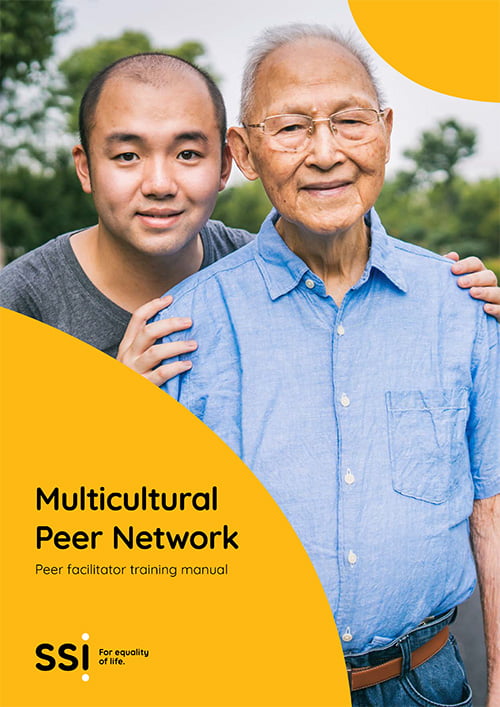
How to establish a group, basic facilitation skills, communication techniques, self-care and support systems.
View the NEW Training Manual – a new interactive page that designed to train facilitators how to run peer led support groups. It provides the knowledge needed to set up a group and develop the skills to take on a facilitator’s role in a visual and engaging way.
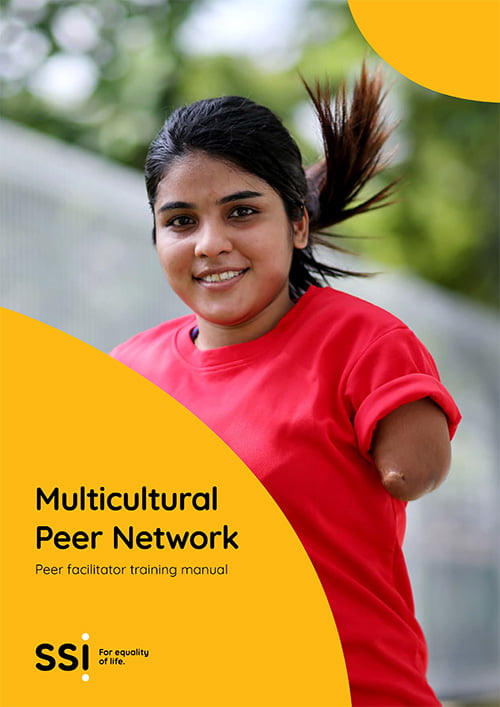
How to help people learn about self-advocacy, circles of support, volunteering, and employment.
In this video, hear from the MPN Program coordinator Susie who gives an overview of the two facilitator guides and how best to use them in discussion groups.

Free resources and facilitator guides
Facilitator training
SSI offers free facilitator training for community organisations and individuals interested in starting their own community peer groups deepening their facilitator skills.
To learn more about the resources on this webpage, facilitator training or other ways SSI supports community organisations, email community@ssi.org.au.
Facilitator guides
These facilitator guides are designed for community organisations to use as a handbook for workshop facilitation and to gain valuable skills in facilitating group discussions.
Book 1: The MPN Model provides an overview of the practice model for engaging with people of CALD backgrounds and disability, including an in-depth explanation of the key principles of the model, their outcomes, and capacity building in utilising this model. View the NEW Training Manual – a new, free interactive way to learn how to run peer-led support groups.
Book 2: This guide is a compilation of resources that can be used by peer facilitators to run a peer group, including how to help people learn about self-advocacy, circles of support, volunteering, and employment.
SSI disability support services
For more information about SSI’s disability support services in NSW, please visit our Local Area Coordination services page or email ssilac@ndis.gov.au.
MPN Supporter Kit – New available resource
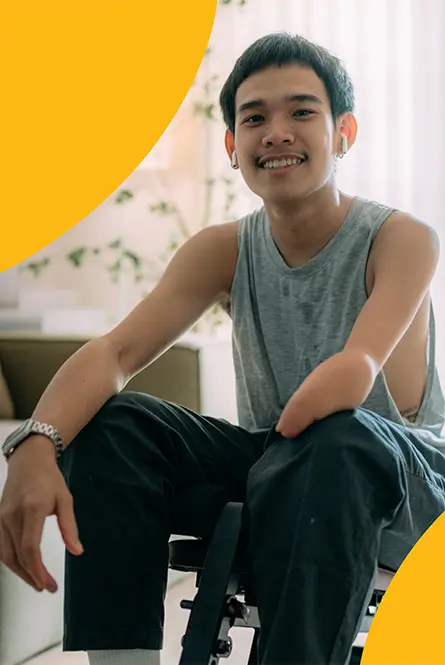
How to run peer-to-peer support groups.

